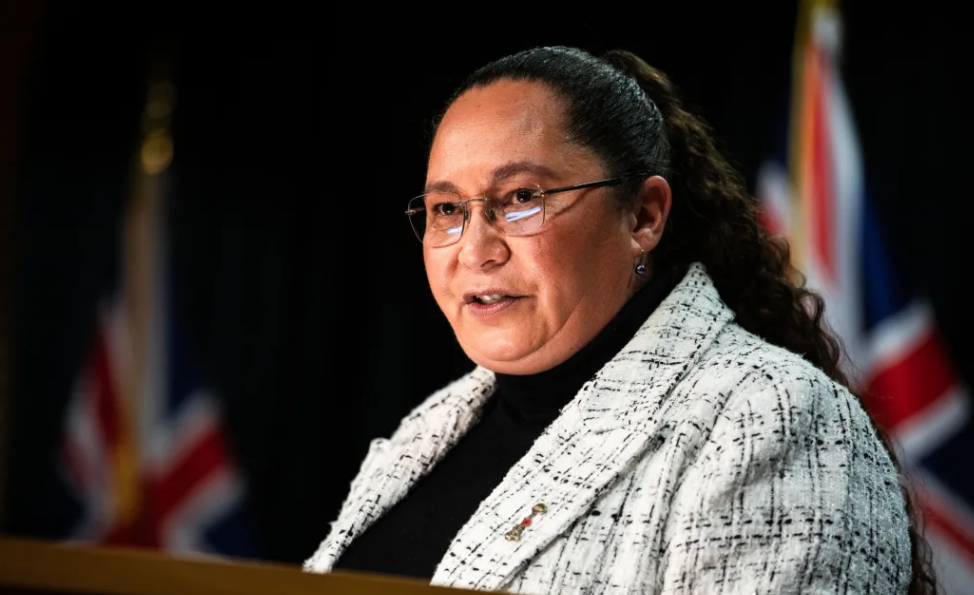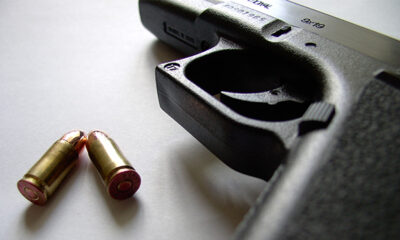Politics
New Zealand Government Unveils Overhaul of Gun Laws

The New Zealand government has initiated a comprehensive overhaul of the country’s gun laws, transferring the responsibility of regulating firearms from the Police Minister to the newly appointed Firearms Minister. This significant reform, endorsed by the National Party and Act NZ, aims to revise the Arms Act, which has been in place since the early 1980s, to improve public safety and streamline compliance for licensed firearm owners (LFOs).
Associate Justice Minister Nicole McKee has spearheaded this legislative effort, which follows a series of changes prompted by the tragic terrorist attacks in Christchurch on March 15, 2019. These reforms are part of the coalition arrangement between the National Party and Act NZ, reflecting a commitment to enhance the country’s firearms regulations.
Key Revisions and Regulatory Changes
Historically, the Arms Act has undergone numerous amendments, including a ban on semi-automatic weapons and the establishment of a new firearms regulator after the Christchurch attacks. The newly structured firearms regulator will answer directly to Te Tari Pūreke, the Firearms Safety Authority (FSA), which is integral to the Crown’s response to the Royal Commission of Inquiry into the attacks. Although the FSA currently operates within the police department, the government plans to reform it into an independent body led by a chief executive, ultimately appointed by the Governor-General.
This chief executive will report solely to the Firearms Minister, currently Nicole McKee, while the Ministry of Justice will oversee and monitor the regulator’s activities. The reform process includes transferring the FSA to a different department, such as the Department of Internal Affairs, although it will remain under police jurisdiction for now.
Concerns and Additional Reforms
The proposed changes have raised concerns among various community leaders, particularly regarding the regulation of military-style firearms. Muslim community representatives expressed apprehension that the government might liberalize these regulations, especially after both McKee and the Prime Minister refrained from ruling out such possibilities last year. Nevertheless, the overhaul maintains the stringent controls on who can legally possess military-style firearms, limiting it to ‘endorsed’ pest controllers and collectors.
Notable adjustments include extending the duration of pest control endorsements from 2.5 years to five years, with a mid-term review to ensure holders’ circumstances remain unchanged. Additionally, collectors of prohibited firearms will now have the option to store critical gun components at the residences of any licensed firearm owner, rather than only with those who share the same endorsement.
The reforms also address loopholes concerning high-capacity pistol magazines. From now on, only individuals with a pistol endorsement will be permitted to purchase and possess magazines holding more than ten rounds, effectively closing a gap in the existing system.
Beyond these specific changes, the legislation will introduce significant measures aimed at improving public safety and accountability. Identified gang members on the National Gang List will be automatically disqualified from obtaining firearms licenses, thereby limiting their access to guns. Furthermore, authorities will implement a statutory ‘red flag’ system, allowing police and relevant agencies to alert the firearms regulator if they possess information that warrants a review of a licensed firearm owner’s eligibility.
In a bid to strengthen enforcement, penalties for over sixty existing Arms Act offences will be increased, and eight new offences will be established, including a prohibition against owning firearms without a serial number. The new legislation also endeavors to address emerging challenges, such as the illegal manufacture of 3D printed firearms and parts, alongside possession of digital files related to firearms without a license.
Overall, these reforms represent a proactive step towards modernizing New Zealand’s firearms laws, ensuring they align with current societal needs while enhancing public safety.
-

 Sports2 months ago
Sports2 months agoNetball New Zealand Stands Down Dame Noeline Taurua for Series
-

 Entertainment2 months ago
Entertainment2 months agoTributes Pour In for Lachlan Rofe, Reality Star, Dead at 47
-

 Entertainment1 month ago
Entertainment1 month agoNew ‘Maverick’ Chaser Joins Beat the Chasers Season Finale
-

 Sports2 weeks ago
Sports2 weeks agoEli Katoa Rushed to Hospital After Sideline Incident During Match
-

 Sports2 months ago
Sports2 months agoSilver Ferns Legend Laura Langman Criticizes Team’s Attitude
-

 Politics1 month ago
Politics1 month agoNetball NZ Calls for Respect Amid Dame Taurua’s Standoff
-

 Sports1 week ago
Sports1 week agoJamie Melham Triumphs Over Husband Ben in Melbourne Cup Victory
-

 Entertainment3 months ago
Entertainment3 months agoKhloe Kardashian Embraces Innovative Stem Cell Therapy in Mexico
-

 World3 months ago
World3 months agoPolice Arrest Multiple Individuals During Funeral for Zain Taikato-Fox
-

 Sports3 months ago
Sports3 months agoGaël Monfils Set to Defend ASB Classic Title in January 2026
-

 Entertainment2 months ago
Entertainment2 months agoTyson Fury’s Daughter Venezuela Gets Engaged at Birthday Bash
-

 Sports2 months ago
Sports2 months agoHeather McMahan Steps Down as Ryder Cup Host After Controversy





















